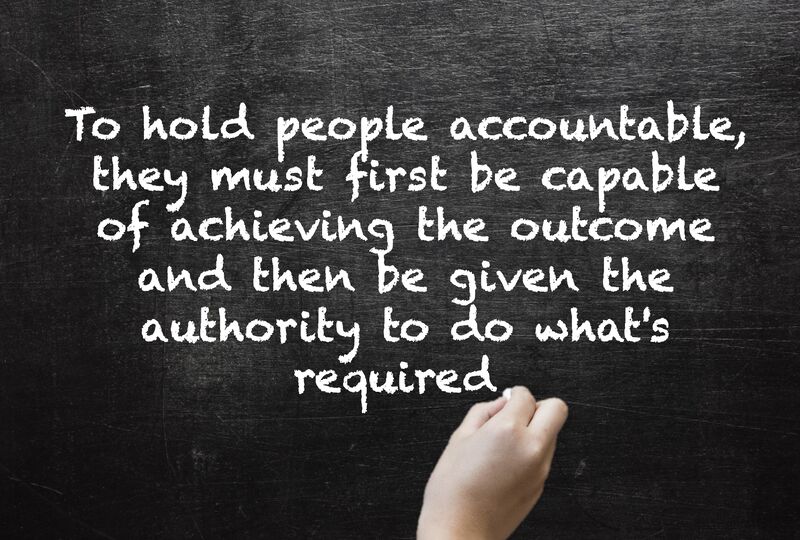
As leaders, we often emphasize the importance of accountability within our teams. However, accountability is a two-way street that begins with us. To truly hold our followers accountable, we must first ensure they are equipped and empowered to achieve the desired outcomes. Here’s a deeper dive into this crucial aspect of leadership:
- Capability Building: Before expecting results, we need to invest in our team’s development. This means providing the necessary training, resources, and support to enhance their skills and knowledge. When team members are well-prepared, they are more confident and capable of meeting expectations.
- Training and Development: Regular training sessions, workshops, and access to learning materials can significantly boost the team’s capabilities. Encourage continuous learning and provide opportunities for professional growth.
- Resource Allocation: Ensure that your team has access to the tools and resources they need to perform their tasks efficiently. This includes everything from software and equipment to adequate staffing and time.
- Support Systems: Establish a support system that includes mentorship, coaching, and peer support. When team members know they have someone to turn to for advice or assistance, they are more likely to take initiative and push boundaries.
- Empowering Decision-Making: Accountability also hinges on authority. Teams must have the autonomy to make critical decisions that impact their work. By trusting them with decision-making power, we not only foster a sense of ownership but also pave the way for innovative solutions and proactive problem-solving.
- Delegation of Authority: Clearly define the scope of authority each team member has. Empower them to make decisions within their domain and trust their judgment. This not only enhances their confidence but also speeds up decision-making processes.
- Encouraging Innovation: Create an environment where team members feel safe to experiment and propose new ideas. Encourage them to take calculated risks and learn from failures without fear of punitive consequences.
- Clear Communication: Ensure that the lines of communication are open and clear. Team members should understand the organizational goals, their individual roles, and the impact of their decisions on the overall success of the project or organization.
- Setting Clear Expectations and Metrics: For accountability to be effective, expectations must be clear, and progress must be measurable.
- Defining Goals: Set SMART (Specific, Measurable, Achievable, Relevant, Time-bound) goals for your team. This provides a clear target and a way to measure progress.
- Regular Feedback: Implement a system for regular feedback and check-ins. This helps in identifying issues early and provides opportunities for course correction.
- Recognizing Achievements: Acknowledge and reward team members for their contributions and achievements. Recognition boosts morale and reinforces positive behaviors.
In summary, holding people accountable is not just about setting expectations but also about enabling success. When we focus on capability and empowerment, we create an environment where accountability thrives and excellence becomes the norm.
As leaders, it is our responsibility to build a foundation where our teams are not just accountable but also set up to succeed. By investing in their development, empowering them with decision-making authority, and setting clear expectations, we pave the way for a culture of accountability and high performance.
Let’s lead by example and foster an environment where our teams can thrive and achieve their fullest potential.
